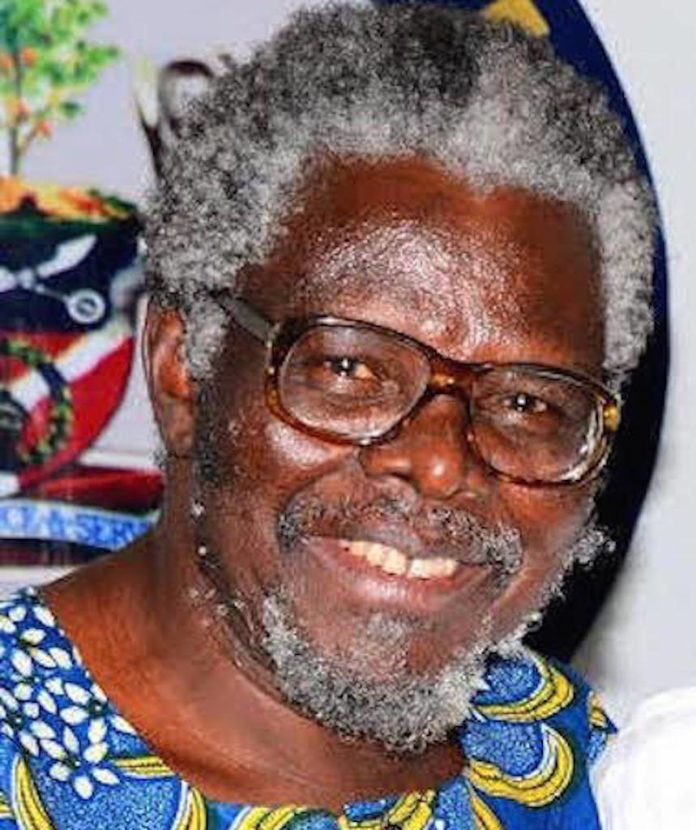By Edwin Madunagu
One of the earliest objections we encountered from our opponents when we entered the organized Marxist political activism in the early post-Civil War years was the one built around the thesis that Marxism, our ideology, was alien to Africa and to Nigeria in particular. We soon realized that this objection was not new, that it was as old as the history of the Marxist ideology in Africa and Nigeria.
We found that our older Nigerian comrades (especially the intellectuals and academics among them) had confronted the objection for at least two decades and a half before our entry. Still later, we learnt that the objection we are talking about was, in fact, a particular application of an older and larger objection, namely, that Marxism, as the overwhelmingly dominant ideology in the socialist and anti-capitalist movements, was alien to human nature.
As we grew older and stronger, but still early in our career as revolutionary Marxists, we found that German Nazism, under Adolf Hitler, had proclaimed that Marxism was an international Jewish “conspiracy” – originated by Karl Marx and promoted by international “conspirators” like Rosa Luxemburg and Leon Trotsky. This was, in fact, one of the specific Nazi “charges” against the Jews, as a race. It later became a pillar of Nazism as an ideology.
This admission may be made: As a young graduate student of mathematics, I was at first destabilized – but not intimidated or tempted – by these objections and charges. But, soon, I became strong enough to begin to respond along this line: To question the relevance, applicability and appropriateness of Marxism in Africa (or Nigeria in particular) is to inquire into the mode of arrival of Marxism in this continent and in this country. And, for a serious student of history (academic or non-academic), to inquire into this arrival is, in some respects, similar to an inquiry into the arrival, in our land, of modern religions, including Christianity and Islam. Finally, the general proposition: To question the relevance of Marxism in the revolutionary understanding of, and intervention in human society or in any segment of it, is to ask how capitalism arrived in human society or in the particular segment, and what it is still doing there.
To put our response more directly: To study the origin of Marxism and its historical trajectory is to study the origin and historical trajectory of Capitalism. Why? Because Capitalism and Marxism are inseparably bound, the latter being the organic “nemesis” of the former. If a young Nigerian asks me what Marxism is doing here, I will ask her/him to go and find out what Capitalism which originated in England is doing here.
I will also tell her/him that both Capitalism and Marxism emerged as adults, with clear identities, in England. Finally, before we end that session, I will re-state the mission of Marxism. This mission is not to defeat Capitalism and thereafter supplant it as “king”. No. The mission statement is that Marxism, as an anti-capitalist “weapon of criticism”, will defeat and bury Capitalism and thereafter become superfluous in an emergent classless and genuinely human society whose initial stages we call socialism.
In my recent published article, “Dialoguing with Pan-Africanist compatriots” (early June 2020), I subscribed to the view that Marxism is a science. Specifically, following Samir Amin, I defined it as the “social science of socialist revolution”. I have also described Marxism as an ideology, an ideology of liberation. I stand by both definitions: Marxism is both an ideology and a science. When I came in contact with Marxism it “fired” me because it rationalized and promoted my previously existing radical and rebellious consciousness. Karl Marx’s writings and deeds between 1843 and 1848, the teachings of my elders and contemporaries in the Nigerian Left and my own studies and experiences contributed immensely to making me a Marxist ideologically. Later, I realized that Marxism is more than an ideology, that it is also a science. Is there a contradiction here? No, not at all.
Speaking specifically about my own development and experiences I would say that I would, perhaps, not have become a Marxist if I had not first encountered Marxism as an ideology. I would, also, probably, not have remained a Marxist if I had not, at a stage in my development beyond the original “firing”, come to see that Marxism is also a science. At the risk of being schematic, I would say that Marx’s writings from 1843 to 1848, including “Towards a Critique of Hegel’s Philosophy of Right”, “Economic and Philosophical Manuscripts”, “Theses on Feuerbach”, “The Poverty of Philosophy” and the “Communist Manifesto” made me a Marxist ideologically. But his writings in the decade following the “Manifesto” (which included “Wage Labour and Capital” and “Critique of Political Economy”) plus “Capital, volume One” made me a Marxist scientifically.
The 1848 “Manifesto” remains the clearest statement of the ideology which bears the name of Karl Marx. But, as the world later learnt and saw, even before the appearance of this “Manifesto”, Marx had produced enough materials to lay the foundations of an anti-capitalist ideology of liberation: not just liberation from capitalist wage-labour and slavery but liberation from “all circumstances” (capitalist and pre-capitalist) in which segments of humanity are “oppressed, humiliated or despised”.
These segments include class, gender, race, ethnicity, nationality, culture, and religion. Before the production of the “Manifesto,” Marx had proclaimed that the proletarian, anti-capitalist ideology which was later codified and given the name Marxism was the solution to the “riddle of history”, a solution that was conscious of itself as a solution.
Two quick footnotes should follow here: One: I think the title of the Manifesto should be read in full as “The Manifesto of the Communist Party” – the title given by the authors themselves – rather than “The Communist Manifesto”, a title that editors, writers and codifiers of Marxism later gave to it. The two titles do not mean the same thing when put in the proper historical context. Two: The battle-cry with which the “Manifesto” ended remains ever fresh: “Workers of all countries, unite … you have nothing to lose but your chains … you have a world to win!”
Karl Marx’s 1859 Preface to his “Critique of Political Economy” may be taken as one of the clearest introductions and statements of Marxism as a science. From this point onward Marx poured out scientific works – always spiced, of course, with ideological and journalistic polemics. Speaking personally again and by way of emphasis, I would say that Marx’s simple demonstration of the critical difference between “labour” and “labour power” (a self-correction he made in his “Wage-Labour and Capital”), his demonstration of the inevitability of workers’ vanguard role in the struggle for socialism and his demonstration of the reality of the state and its role in pre-socialist history helped to make me a scientific Marxist in addition to being a Marxist ideologue.
Karl Marx died in 1883. That was 137 years ago. Since then Marxism has grown both as ideology of total and universal liberation and as social science of socialist revolution. But it has also, naturally, and inevitably, developed so many factions and so many tendencies. But then: Is there a line, a red line, beyond which a Marxist faction or tendency can no longer seriously or legitimately claim to be Marxist? Should one of my numerous young Christian compatriots ask me this question, I would polemically, but with sufficient sensibility, answer her or him along the following line: Is there a red line beyond which a Christian individual, or formation, or sect, or tendency cannot continue to claim to be Christian?
The answer I receive will not settle the matter, since there is a big difference between the nature of Christianity and the nature of Marxism. But the answer will provide a sufficient basis for further discussion.
Madunagu, mathematician and journalist, writes from Calabar, Cross River State, Nigeria.















